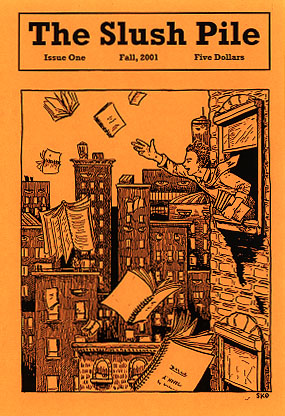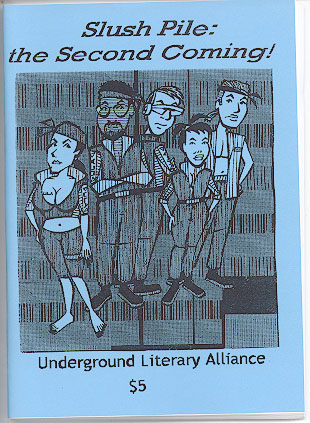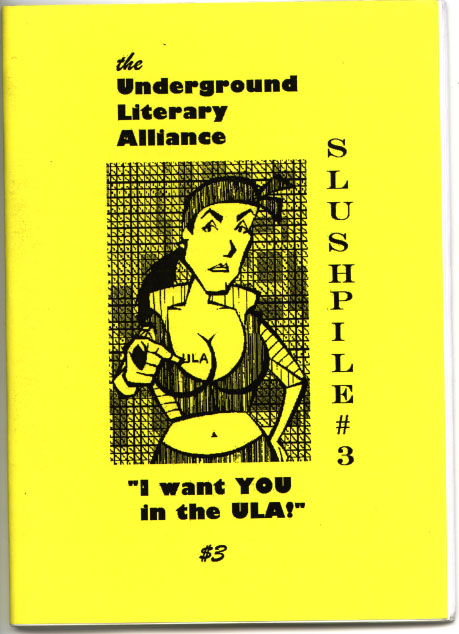How to Save Indy Bookstores
I’ve been getting depressed at quite a few bookshops I visit today.
They seem to have lost their bearings.
In this age of postliteracy, TV and Internet, I see the following
as the only hopes for bookstores:
*Quality stock. Screened stock. Refined stock. No chaff. Be selective!
Clearly display standards and savvy awareness. This will HEARTEN the public.
*Know your stock, know what’s good in each area, know what’s what.
*Know your customers, personally, what they like, ask if you don’t know
and be prepared to respond and help IN DEPTH.
*Handsell. Get the right books to the right people.
*Don’t use many words or talk a lot but CONTACT each
customer appropriately, help them make the needed connections.
*Support, seek out and promote publishers of true literature and art.
Aggressively carry, evaluate and discuss new work from ALL sources and
types with by far most effort going towards books NOT produced by
the mass market in either its mainstream, small or academic forms.
*Internet search engines presently give great access, but the SMART AGENT
hasn’t been developed yet. Bookshop clerks and librarians are the living,
breathing, PERFECT smart agents or filters for EVERY one of their
customers. Reviewers are usually shortsighted handmaidens,
wrong most of the time and shallow the rest of the time. Clerks and librarians
have the work of the ages at their fingertips (as do reviewers who see
their role mostly as salesmen of the New).
*Carry ALL types and eras of books. Online bookstores and chains have
instant access to the generic product of the distributors. Indy bookstores
(real bookstores) need to carry the WHOLE RANGE if they hope to compete.
They MUST carry and aggressively promote the sort of things that are NOT
conducive to distribution (in ADDITION to those that are). Indy bookstores
because they’re light, fast and small—-not top-heavy—can do MORE VARIETY
than those which are mostly wired to big distro and PR channels (Oprah).
It’s my contention that the washout in thought and quality on behalf
of 99% of mainstream publishers, small press publishers and
academic presses is responsible for the decline of our civilization in
general and bookstores and publishing in particular. (Even as crap
flourishes willynilly.) Literature is the Queen Art and leads the others.
Nuff said.
The doom of bookstores:
*Books seen as product.
*Customers seen as ‘perps’, ‘them’, hassles, to be processed, the herd.
*Publishers seen as annoyances, to be run thru hoops.
*Independent publishers seen as anthema, ignored and hassled
unless they work thru distros.
*Clerks seen as employees rather than as apprentices or master craftsmen.
*Hard times gleefully hoped-for upon or caused for other indy efforts
in attempt to spread ones own guilt around. —Small press titles
intentionally not pushed or restocked after good sales.
The Internet has given the public direct access to a wide variety
of alternatives. Thus the 60%-bite Distro should now be seen only
as suitable for a certain narrow kind of generic product suited to
supporting the costs of middlemen. Bookstores need to include all
the range of books to survive against online services who can out-distro
the distros. They can use distros and more. They must aggressively
hunt and develop the publishing and literary forms which are less
conducive to distro/TV/net. Their SOUL is their only asset that
The Machine can’t duplicate or outdo.
The computer has made it quick, easy (and thus necessary) for bookstores
and librarians to buy from independent publishers. They have even
less reason anymore to only buy from a distro. Maintaining records,
accounts and inventory for lots of tiny accounts is now easy.
But I see the opposite happening: indy bookstores are trying to mirror
the callow corpo stores. Computers give them the wrong feeling that unless
a customer is big he is meaningless. Distros and systemology cause
them bureaucratic pain which they pass along to the little guy.
They start using the same TQM marketing-speak and doubletalk
by which the corpos are kicking their butts, they play into
the hands of those who they can’t hope to compete with using the same
modes—thus driving reality and quality from their last homes, the indy shops.
(I’ve seen indy clerks act more brownnosey, bureaucratic and brainwashed
than the chain clerks, who sometimes get to understand the enemy after working
with it awhile. Envy is a danger to the indy’s!)
In fact, true variety, true diversity, true quality, service and the little guy
are the only hope for indys and us all.
After all, all cultural entities are connected, literature is queen,
and niches are only terms of convenience. Let’s break down the
barriers and move on to the next big thing, no more slavishness
to the passe’. The computer can free you and show you your
unique strengths, or you can play into the hands of those who
abuse it for gain instead of wholesome cultural good.
Can anything good come from corpos and committees?
Independent initiative is the answer and the hope of our indy shops!
Didn’t Nelson Algren say that literature is made when writing
goes up against the legal establishment? Which sources inspired
the last great literary gains and resurgence in the role of literature?
Chains or indys? Think ‘Henry Miller’ and the small press and
bookshops who went to bat for him. They inspired a reading revolution,
the rucksack revolution and Kerouac. (Think ‘Lenny Bruce’ as well.)
You think that period is over? The stakes are HIGHER now, the need
to go against the grain greater and more desperate. Whoever takes
the initiative will get even greater response from the public than before.
Where’s the pressure and how can it be released? Get to work!




